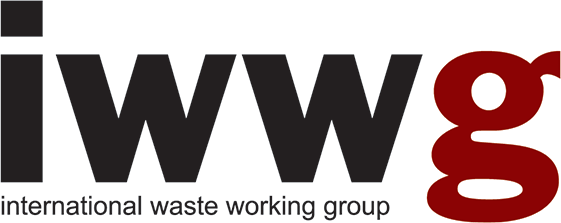COMPARISON OF WASTE MANAGEMENT SYSTEMS IN WESTERN AND TRANSITION ECONOMIES WITHIN THE WATRA PROJECT
- Roman Maletz - Institute of Waste Management and Circular Economy, Technische Universität Dresden, Germany
- Stephanie Wohmann - Institute of Waste Management and Circular Economy, Technische Universität Dresden, Germany
- Alexandra Pukhnyuk - Institute of Waste Management, University of Natural Resources and Life Sciences, Vienna, Austria
- Available online in Detritus - Volume 02 / June 2018
- Pages 96-104
Released under CC BY-NC-ND
Copyright: © 2018 Cisa Publisher
Abstract
The transition from a planned to a market economy has been a great challenge for all post-socialist states of the former Eastern Bloc. Public services which were to a major extent previously subsidized by the state needed to be adapted to new economic realities. This paper will present some of the results of a country overview report. This report represents the first working package of the WaTra project, which aims to help understand and develop the waste management systems of selected transition economies. 13 European and post-Soviet countries were chosen with different starting conditions and economic states to investigate which are the crucial factors in enabling the development of modern waste management. The countries considered were compared with each other using indicators of waste management. Waste collection, waste treatment, landfilling, recycling, composting and incinerated waste per capita are the main aspects taken into account and set in relation to economic indicators. Western EU countries generate higher amounts of waste per capita and have higher recycling rates. Landfilling is the major waste treatment method in post-Soviet and Eastern European countries, even among the EU states. The change from practices of only landfilling to modern waste management systems with high recycling and recovery is more recognizable. The more developed a country’s waste management system is, the more waste is generated according to the strengthening of its economy.Keywords
Editorial History
- Received: 08 Feb 2018
- Revised: 18 May 2018
- Accepted: 20 Jun 2018
- Available online: 30 Jun 2018
References
BiPRO (2012). Screening of Waste Management Performance of EU Member States. Report ordered by the European Commission, Directorate-General, Environment.
Edler D. and Blazejczak J. (2015). Beschäftigungswirkungen des Umweltschutzes in Deutschland im Jahr 2012. Publication from the DIW ordered by the UBA, Germany (Ed.).
Fischer (2013). Municipal waste management in Estonia. Report prepared for the European Environment Agency.
Klampfl H., Gelbmann U., Schmidt G. (2006). Die Entwicklung der Abfallwirtschaft als Phasenmodell. In Quantensprünge in der Abfallwirtschaft - Entwicklung eines innovationsorientierten Phasenmodells der europäischen Abfallwirtschaft, Klampfl-Pernold, Gelbmann (Eds), Shaker, Aachen.
Maletz R. (2018). Success Factors for the Implementation of Separate Collection Systems. In: Maletz, Roman; Dornack, Christina; Ziyang Lou (Ed.): Source Separation and Recycling - Implementation and Benefits for a Circular Economy; The Handbook of Environmental Chemistry, Vol. 63; Springer Nature, Heidelberg.
DOI 10.1007/698_2017_51
VDMA (2015). Abfallwirtschaft Russland Siedlungsabfälle. Publication from German Mechanical Engineering Industry Association (VDMA). Accessed 1.12.2016.
Wohmann S., Maletz R., Abashyna K., Arlouski P., Chernikova O., Karpenko Y., Khandogina O., Melnikova I., Pavlova M., Scharenberg L., Shashanka S., Shilova I., Skryhan H., Stolberg F. (2016). Comparison of WM Systems in Western and Transition Economies (Overview report). Within the framework of the WaTra project.




